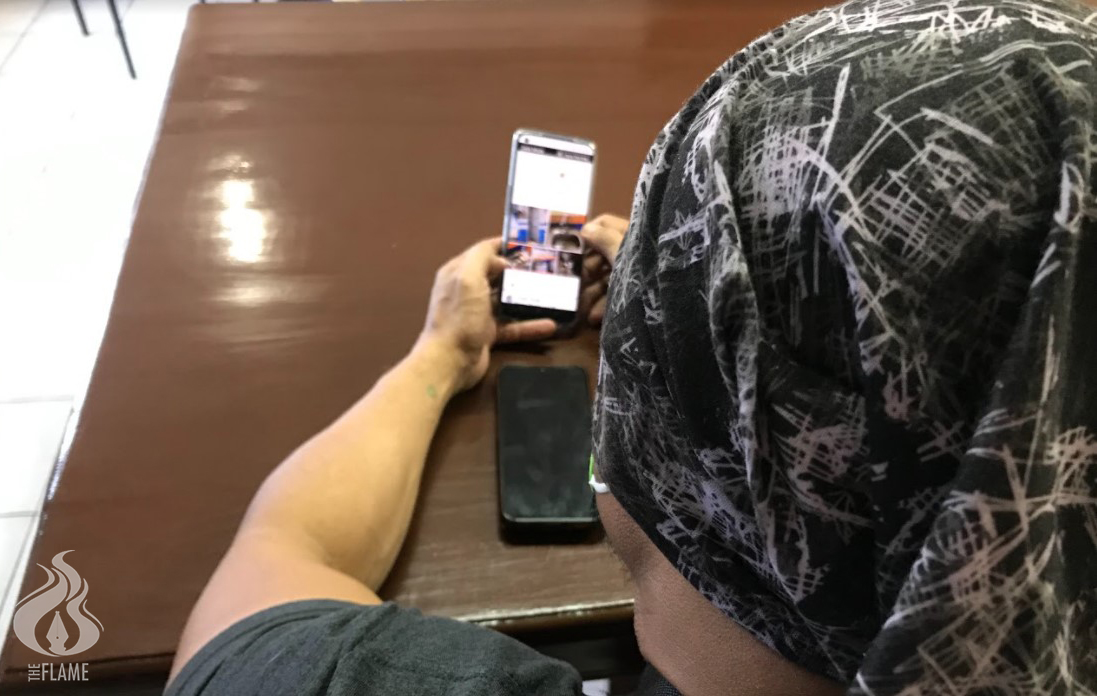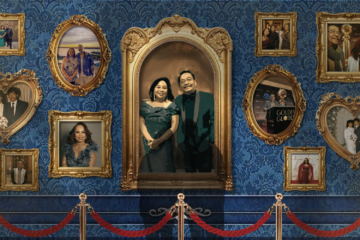
WEEKS BEFORE the official start of this year’s local campaigns, Raphy and Harry (not their real names) have already posted propaganda on social media.
They would call out and highlight the opposition’s wrongdoing, which could benefit the local politician they are serving.
As the tight race for city mayor heated up, trolls from both sides hurled insults and allegations against each other.
Raphy and Harry had been doing everything to promote their candidate and to discredit their rivals, even at the expense of truth.
“Corrupt!” they wrote as if unleashing hell towards their target social media users.
While they do not have substantial evidence to back their claim, the two insisted that what they wrote was the truth.
“I do not lie when I troll because I only share the truth.” Raphy said in defense.
“That is not slandering.”
Cyber troops for hire
Nordic mythology paints trolls as monstrous beings who dwell in isolated areas such as caves and mountains and are rarely helpful to humans.
Making their way into the Internet, trolls have evolved into anonymous social media users out to sow discord and spread fake news.
Trolling is generally depicted negatively in academic literature. In his book Netymology: From Apps to Zombies: A Linguistic Celebration of the Digital World, Tom Chatfield said a troll is anyone who maliciously attempts to sow digital dissent through their words. Researcher Jonathan Bishop described a troll as someone who abuses others online for one’s own enjoyment.
An Oxford University published in 2017 indicated that about P10 million was spent for trolls to spread President Rodrigo Duterte’s messages and to attack his critics. Some 400 to 500 “cyber troops” were hired to harass Duterte’s critics, the study claimed. The Partido Demokratiko Pilipino–Lakas ng Bayan, the President’s political party, has denied using online trolls during the campaign.
Alarmed by how trolls have influenced the Filipinos, UST communication instructor Tito Quiling Jr. said trolling succeeded because misinformation could be easily injected into various social media posts.
[Due to trolling], powerful and successful image crafting happens, and then it is usually attributed to the [candidates’ chances of winning],” Quiling told The Flame.
More than a thousand troll accounts are scattered across social media sites, with the majority operating on Facebook. This is especially dangerous given that according to online reference material Datareportal, about 83.9 million Filipinos are actively using Facebook as of February this year.
In a way, this phenomenon is not something new, according to political scientist Asst. Prof. Ronald Castillo, as propaganda is “as old as politics.”
“In politics, there is black propaganda… but the thing with trolls is that there is the element of social media right now, so it is just an evolution of something that has already been existing before,” Castillo said.
Trolling with a purpose?
In 2018, Raphy created a troll account when he was still working for a business process outsourcing company to oust the erring barangay captain or village chief in his area.
He shared how deeply upset he was with their barangay captain back then. According to him, the village officials would forgo community projects and use the funds for their own interest.
“I had no choice but to take steps to wake the people up,” Raphy said.
His trolling, eventually, led to the defeat of the barangay captain in the succeeding election.
A year later, a mayoral candidate recruited him to work as a troll for the 2019 elections. He admitted hesitating to accept the job initially but decided later on to take it, believing it was for the “common good.”
While he categorically denied being a paid troll, he admitted to receiving an “allowance” of P10,000 from time to time.
“I won’t help a candidate if what they are doing is wrong, [because] being a troll… is not always about being paid, it is [also] about having principles,” Raphy said.
He also claimed that his trolling is a form of “community participation.”

Harry saw trolling as an act of loyalty to the politician who he deemed to be a capable leader. He said he and the politician he supported have a good relationship.
“He is like a father to me,” he said. “That is why I need to fight for him. I will not stop trolling until there is no more fake news [against him].”
Harry owns 50 troll accounts as of writing, but unlike other members of his trolling group, he monitors his social media analytics to ensure that his posts are drawing engagements. On average, his main trolling account reaches 9,000 people.
Trolling as journalism?
Raphy, admitted his job also entails risks. Usually, he does not publicize his name, but one day, he mistakenly revealed his identity to a few supporters of the opposing candidate after he was carried away by heightened emotion.
As a result, he and his family received numerous threats, including death threats. Despite that, Raphy continued, believing what he was doing was “journalism,” a view that goes against the basic journalistic principles of transparency and independence from partisanship.
Harry claimed that he does not participate in negative campaigning since he only shares the “truth.” He is also convinced that he is on the “right side of politics.”
Quiling likened trolling to “yellow journalism” or the practice of sensationalizing news for profit that became popular during the 1890s. However, he noted that “troll farms” stretch the truth to outright lies.
“It is very easy to spin some stories that should benefit one group… it becomes now, a form of character assassination, especially for the ones who pay for the service of the trolling,” the communication professor said.
Castillo acknowledged that some people view trolling differently, recalling a seminar where a political science scholar from the De La Salle University argued that the existence of trolls could be seen as a testament of democracy.
“It is people doing what they can in a free for all game. You’re just doing what you can to survive, and the thing is, politics is not a game of survival,” Castillo said.
“If you want good governance, there should be an element of truth. If we are trying to make a good government, there should be no trolls at all,” he added.
The continuance of trolls, Castillo claimed, is “a sign of [the] continuing decay of Philippine politics.”
The need for education
To counter trolls that are spewing hate and disinformation, Quiling cited the need to educate people through “non-elitist” conversations. Youth participation can play a big role in combating trolls since most voters fall under 25 years old and below, he added.
Quilling also called for a stronger media literacy for every citizen.
“It (media literacy) has to combat the existence of political trolls,” Quiling said. “Sometimes, people do not objectively discern what is legitimate news, what is false, and what can be fake news.” F




[…] READ: Trolling for the truth? Two online trolls claim they are not just after the money […]